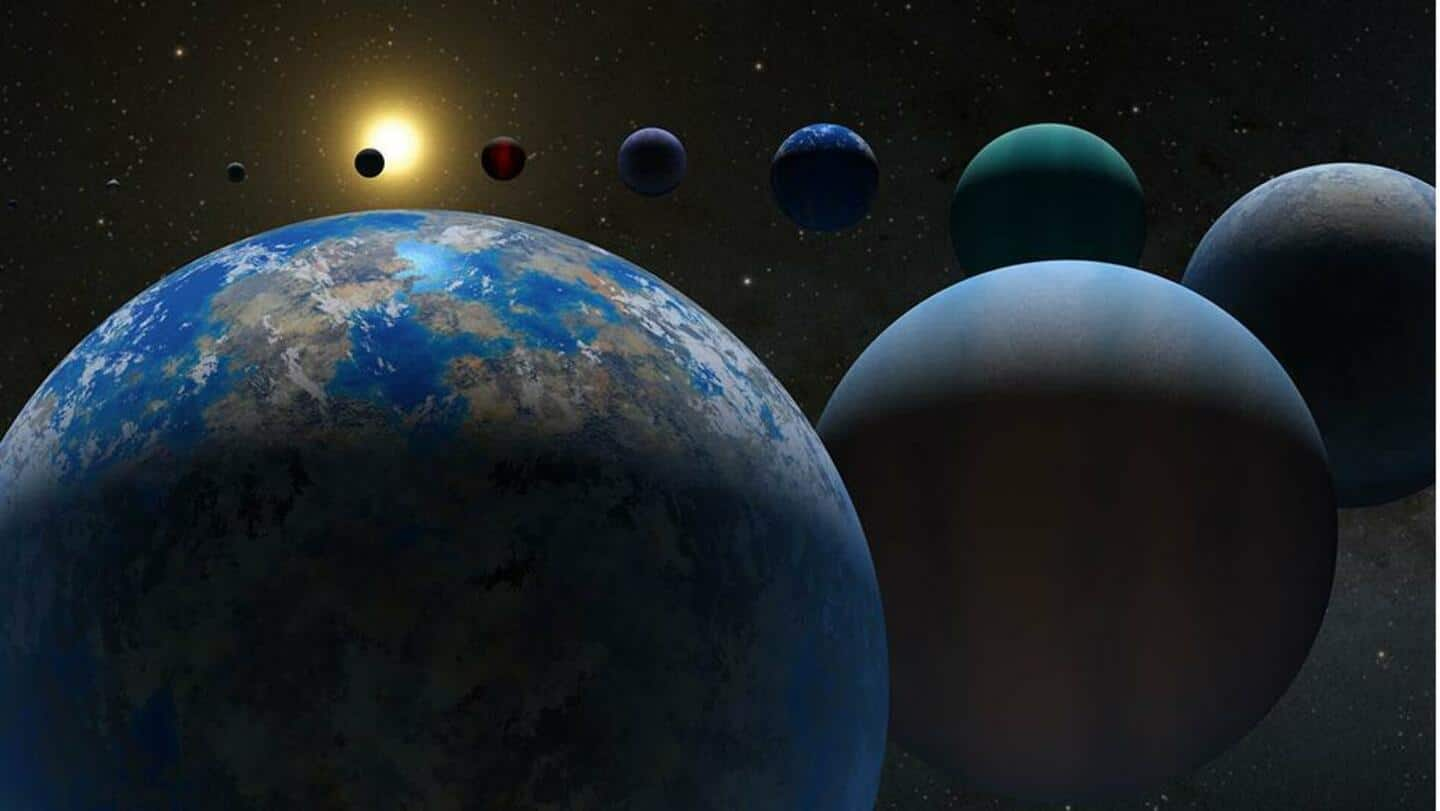
Astronomers discovered over 200 new planets in 2022
What's the story
NASA has confirmed via a recent Twitter post that 5,235 exoplanets have been discovered to date. In 2022 alone, astronomers across the globe discovered over 200 planets outside our solar system. This is a commendable feat considering the fact that less than 5,000 exoplanets were identified when the year began. The space agency is looking forward to uncovering more unknown worlds in 2023.
Context
Why does this story matter?
TESS (Transiting Exoplanet Survey Satellite), which was launched in 2018, has been probing exoplanets in orbit around the brightest dwarf stars. Further, one of the main objectives of the James Webb Space Telescope is to investigate the atmosphere of exoplanets. Given the current rate of scientific advancements in terms of space exploration, who's to say what this new year might bring?
Discoveries
Some of the discovered exoplanets were rocky planets like Earth
Exoplanets have diverse characteristics and compositions. What's interesting is that 4% of the newly discovered exoplanets are rocky planets like Earth or Mars. The list of exoplanets consists of what's known as "hot Jupiters," so-called because of their close proximity to their parent star. There are also "super-Earths" - rocky planets bigger than Earth and "mini-Neptunes," which are akin to smaller versions of Neptune.
Information
Each exoplanet is a "brand-new" world
"It's not just a number," said Jessie Christiansen, a research scientist at the NASA Exoplanet Science Institute at Caltech. "Each one of them is a new world, a brand-new planet. I get excited about every one because we don't know anything about them."
Recent discoveries
HD 109833 b takes 9.2 days to complete one orbit
A recent discovery in 2022 was a Neptune-like exoplanet, called HD 109833 b. As per NASA, the exoplanet's mass is equivalent to that of 8.69 Earths and it takes 9.2 days to complete one orbit around its parent star. It was identified via the transit method wherein a dimming of the host star's light is observed when its orbiting body crosses it.
Upcoming missions
NASA and ESA have exoplanet-probing missions lined up
NASA's Nancy Grace Roman Space Telescope will make new exoplanet discoveries apart from investigating dark matter. It will have a field of view that is 100 times wider than the Hubble Space Telescope and is expected to launch in 2027. ESA's Ariel mission will study the formation and evolution of exoplanets, and will most likely take off in 2029.